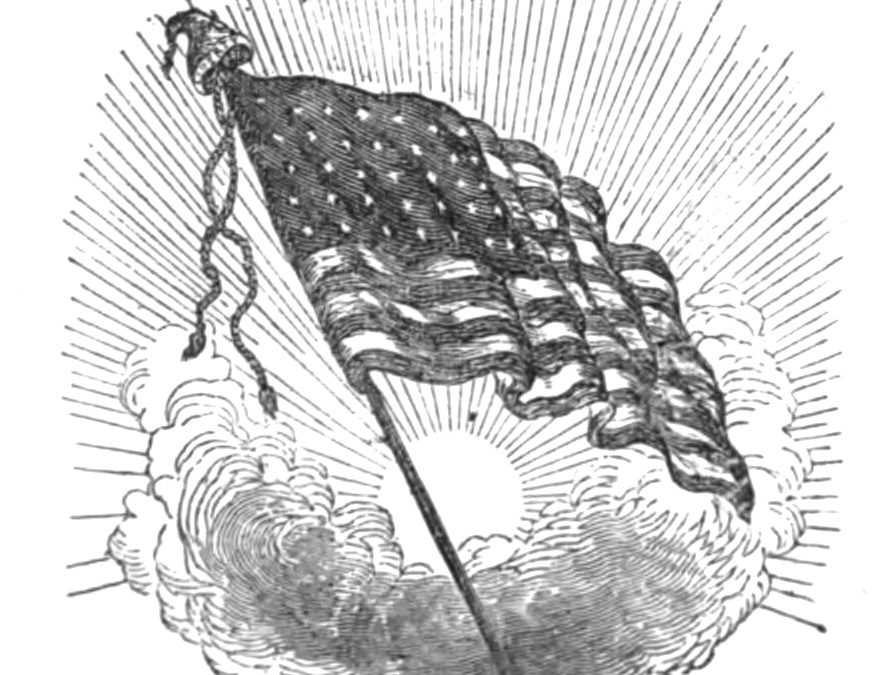
by Richard Subber | Aug 8, 2024 | American history, Book reviews, Books, History, Revolutionary War
the way it was…
Book review:
The History of the American Revolution vol. II
by David Ramsay
New York: Russell & Russell, 1789, 1793, 1968
360 pages
One of the best reasons for reading The History of the American Revolution is that it was written by an educated physician who actually served in the Revolutionary War.
David Ramsay wrote a book that is mostly play-by-play. The context is who did what and when.
There’s not a lot of deep thinking about the motivations of the politicians and generals on either side.
The reader can imagine that this is the way that Huntley and Brinkley might have reported the Revolutionary War.
* * * * * *
Book review. Copyright © Richard Carl Subber 2024 All rights reserved.
Book review:
The American Revolution: A History
The “Founders” were afraid
of “democracy”…
by Gordon S. Wood
As with another eye: Poems of exactitude with 55 free verse and haiku poems,
and the rest of my poetry books are for sale on Amazon (paperback and Kindle)
and free in Kindle Unlimited, search Amazon for “Richard Carl Subber”
* * * * * *

by Richard Subber | Jul 27, 2024 | American history, Book reviews, Books, Democracy, History, Politics, Power and inequality, Reflections
think again about democracy
Book review:
Our Ancient Faith:
Lincoln, Democracy, and the American Experiment
Allen C. Guelzo
New York: Alfred A. Knopf, 2024
247 pages
Despite the title, Guelzo’s estimable book is not primarily or thematically about Abraham Lincoln. It is a densely researched and completely explained treatise on democracy, what it means, and what it might mean.
Our Ancient Faith opens new vistas of thought for me, and I’m thankful for my newly conceptual ideas about democracy, including the good, the bad, and the ugly. Make no mistake, democracy isn’t inherently our salvation. We’ve got a lot to do as we go down that path.
Granted, the reader will learn about Lincoln, although a good grounding in Lincoln’s life story and his times will serve the reader well.
I’m a bit leery of believing that I know for certain what a dead man was thinking when he said this and that. Guelzo perhaps reads too deeply into Lincoln’s recorded words. The book certainly is not hagiographic, and Lincoln certainly was a deep thinker, but I don’t want to forget that Lincoln was an ambitious man and a politician.
I’ll be inclined to read the book again for the expansive exposition of political thought.
The book, with extensive notes, is 247 pages, a very sensible length.
* * * * * *
Book review. Copyright © Richard Carl Subber 2024 All rights reserved.
Book review: The Snow Goose
…sensual drama, eminently poetic…
by Paul Gallico
My first name was rain: A dreamery of poems with 53 free verse and haiku poems,
and the rest of my poetry books are for sale on Amazon (paperback and Kindle)
and free in Kindle Unlimited, search Amazon for “Richard Carl Subber”
* * * * * *

by Richard Subber | Jul 11, 2024 | American history, Book reviews, Books, History, Language
This is good storytelling
Book review:
The Brothers
Janet M. Kovarik
2014
If you’re a student of the Civil War, you’ll recognize the actual historical figures who are part of the story, and you’ll quickly feel comfortably familiar with Stu and Beau and Sarah and their families, because they embody some of the compelling human agents of the wartime drama.
These characters are three-dimensional. There is human urgency in their speech and actions. These are cerebral characters who are articulately reflective, thoughtful about their circumstances and their life journeys, and passionate about love and rectitude and their personal legacies and futures.
The Brothers is the first novel in The McCullough Saga. The twins, Beau and Stu, have explicitly distinct personalities but their lives have remarkably similar if unconventional trajectories. They are the central figures in a human story, on a human scale, with a conspicuously realistic historical setting. Storm Haven, their deep South plantation, is convincingly researched, as are the gritty battle scenes, the economics and logistics of the war, the arduous success of the Underground Railroad and the delights of antebellum southern cuisine.
The Brothers is a dialogue-rich offering of historical fiction. I’m a dialogue fan. This is good storytelling.
* * * * * *
Book review. Copyright © Richard Carl Subber 2024 All rights reserved.
The Unknown American Revolution (book review)
in the streets, says Gary Nash
Above all: Poems of dawn and more with 73 free verse poems,
and the rest of my poetry books are for sale on Amazon (paperback and Kindle)
and free in Kindle Unlimited, search Amazon for “Richard Carl Subber”
* * * * * *

by Richard Subber | Jun 1, 2024 | American history, Book reviews, Books, History, World history
imagine that you had been there…
Book review:
Countdown 1945:
The Extraordinary Story of the Atomic Bomb
and the 116 Days That Changed the World
by Chris Wallace with Mitch Weiss
New York: Avid Reader Press, 2020
312 pages
There is quite tolerable intensity in Countdown 1945, in tandem with the horror of the use of the atomic bomb in Japan at the end of World War II.
There are gripping revelations from all of the principals involved in the development of the bomb and the decision to use it. There is dialogue more or less on every page. Countdown 1945 is not so much a book as it is the integration of tales told by the men and women who were there, doing it, and living through it.
This is one of the very few books I’ve read from cover to cover in the past several years.
It was a learning experience, and I was completely aware that I was vicariously sharing the terrible experiences of the folks who had anything to do with Little Boy and Fat Man.
* * * * * *
Book review. Copyright © Richard Carl Subber 2024 All rights reserved.
“The beginning is always today.”
(quote, Mary Shelley)
so get started…
Above all: Poems of dawn and more with 73 free verse poems,
and the rest of my poetry books are for sale on Amazon (paperback and Kindle)
and free in Kindle Unlimited, search Amazon for “Richard Carl Subber”
* * * * * *

by Richard Subber | May 16, 2024 | American history, Book reviews, Books, History, Politics, Power and inequality
“credit” is P.C. for “lending money”
Book review:
American Bonds:
How Credit Markets Shaped a Nation
by Sarah L. Quinn
Princeton, NJ: Princeton University Press, 2019
288 pages
Quinn writes plain academic prose, and she has a lot to say.
“Credit” is a very polite way of saying “lending money,” which is a very polite way of describing what is elsewhere called “usury.”
It’s no surprise that lending money has been part of the social, economic, and political landscapes since money was invented, and certainly credit markets have always existed in America since colonial times.
American Bonds is a deeply engrossing text (it’s not a casual read) about how folks with money and businesses and the government have used credit availability for personal, corporate, and policy advantages. Credit has always been part of the American story.
You might try reading it a chapter at a time.
* * * * * *
Book review. Copyright © Richard Carl Subber 2024 All rights reserved.
Home Team: Poems About Baseball (book review)
Edwin Romond hits another homer…
Writing Rainbows: Poems for Grown-Ups with 59 free verse and haiku poems,
and the rest of my poetry books are for sale on Amazon (paperback and Kindle)
and free in Kindle Unlimited, search Amazon for “Richard Carl Subber”
* * * * * *

by Richard Subber | Apr 14, 2024 | American history, Book reviews, Books, Democracy, History, Human Nature, Politics, Power and inequality
the American crisis…
Book review:
Twilight of the Elites: America After Meritocracy
by Christopher Hayes
New York: Crown Publishers, 2012
292 pages
Twilight of the Elites is a frightening assessment of our culture, our government—our civitas.
“We are in the midst of a broad and devastating crisis of authority” (p. 13). You bet we are—and Hayes was writing before Trump was even a speck in your eye.
Americans embrace the American Dream, the Horatio Alger thing, that is, meritocracy: the acceptance and endorsement of the goodness of the idea that we should help ourselves to prosper and be successful, and that those among us with the greatest talent and strength and ambition should enjoy greater prosperity and greater success. It is an article of faith among most Americans that the cream will rise to the top, and deservedly so. Honest hard work will and should be rewarded. One of Hayes’ definitions of a benign meritocracy is “the aristocracy of talent.”
An obvious characteristic of meritocracy, of course, is inequality. “It is precisely our collective embrace of inequality that has produced a cohort of socially distant, blinkered, and self-dealing elites. It is those same elites who have been responsible for the cascade of institutional failure that has produced the crisis of authority through which we are now living…the consistent theme that unites [these failures] is elite malfeasance and elite corruption” (pp. 22-23). This acceptance of the meritocracy mythology “allows everyone to imagine the possibility of deliverance [from unfavorable circumstances], to readily conjure the image of a lavish and wildly successful future” (p. 47).
Hayes points out, however, that “a deep recognition of the slow death of the meritocratic dream underlies the decline of trust in public institutions and the crisis of authority in which we are now mired. Since people cannot bring themselves to disbelieve in the central premise of the American dream, they focus their ire and skepticism instead on the broken institutions it has formed” (p. 63). There is ample attention to the dreadful failure of the media, among other institutions, to sustain our communal understanding and respect for facts and the truth.
A suggestion about one possible agent of positive change identifies a “radicalized upper middle class” that bridges the liberal-conservative division, and forces accountability on our institutions of government, justice, education and finance. Hayes imagines “a crisis…necessary upheaval and social transformation,” and acknowledges the obvious: those with power never want to give it up.
Twilight reminds us that the ultra-wealthy, ultra-powerful 1% will hang on to what they’ve got—and keep trying to get more—until their reality changes.
Hayes tells many truths about the devastation that wracks American culture and most Americans, because the myth of the American dream is enabling a tiny elite to amass wealth and power, and use both to corrupt our society.
Americans must accept the frightening hardships
of a sincere commitment to change things.
Let’s get started.
* * * * * *
Book review. Copyright © Richard Carl Subber 2024 All rights reserved.
Book review: Tales from Shakespeare
summaries by Charles and Mary Lamb…
Writing Rainbows: Poems for Grown-Ups with 59 free verse and haiku poems,
and the rest of my poetry books are for sale on Amazon (paperback and Kindle)
and free in Kindle Unlimited, search Amazon for “Richard Carl Subber”
* * * * * *





